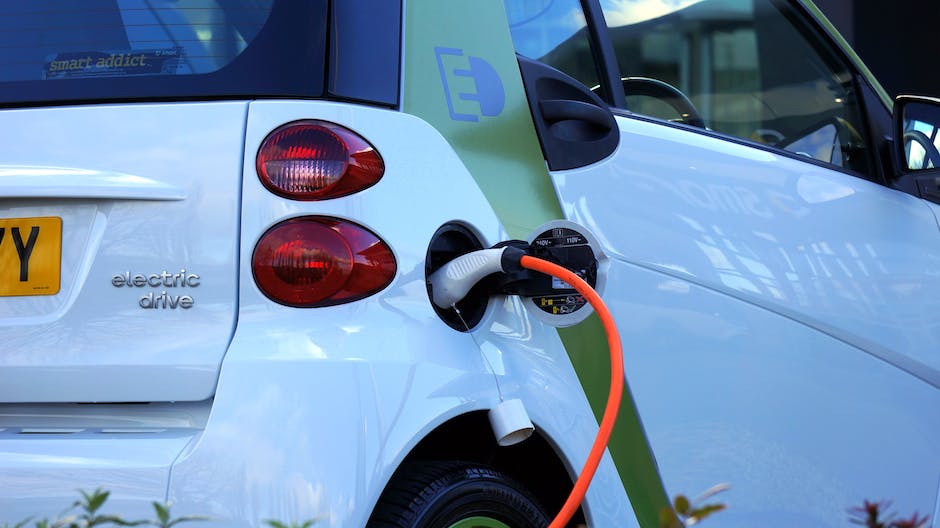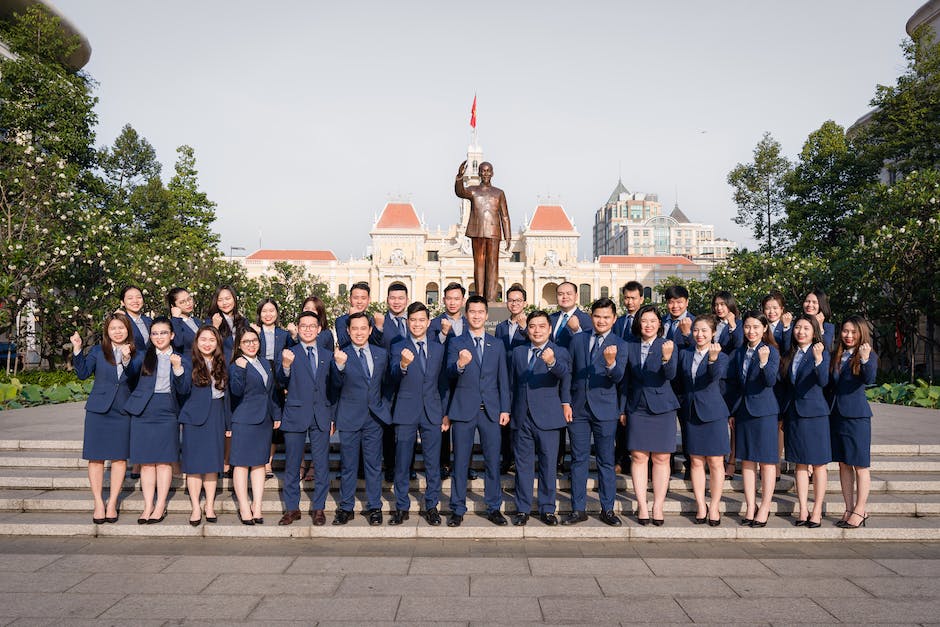Table of Contents
- Introduction
- The Rise of Tesla: How Elon Musk Transformed the Electric Car Industry
- Sustainable Energy Solutions: Exploring Elon Musk’s Vision for a Greener Future
- The Impact of Electric Vehicles on the Environment: Analyzing Elon Musk’s Contribution
- Elon Musk’s Role in Shaping the Future of Transportation: A Look at the Electric Car Revolution
- Q&A
- Conclusion
Elon Musk: Pioneering the Electric Car Revolution for a Sustainable Future.
Introduction
“Master of the Electric Car Revolution: Elon Musk’s Drive Towards a Sustainable Future” is a book that explores the life and achievements of Elon Musk, the visionary entrepreneur behind Tesla Motors. This book delves into Musk’s relentless pursuit of sustainable transportation and his role in revolutionizing the electric car industry. It provides insights into Musk’s innovative ideas, his determination to combat climate change, and his vision for a sustainable future powered by renewable energy.
The Rise of Tesla: How Elon Musk Transformed the Electric Car Industry

The electric car industry has experienced a remarkable transformation in recent years, largely thanks to the efforts of one man: Elon Musk. As the CEO of Tesla, Musk has become synonymous with the electric car revolution, leading the charge towards a more sustainable future.
Musk’s journey in the electric car industry began in 2004 when he joined Tesla as chairman of the board. At the time, electric cars were seen as a niche market, with limited range and high costs. However, Musk saw the potential for electric vehicles to disrupt the automotive industry and set out to make Tesla a leader in the field.
Under Musk’s leadership, Tesla introduced the Roadster in 2008, the company’s first electric car. The Roadster was a game-changer, with a range of over 200 miles and acceleration that rivaled traditional sports cars. It proved that electric cars could be both practical and exciting, challenging the perception that they were slow and boring.
Building on the success of the Roadster, Musk set his sights on creating a more affordable electric car for the mass market. In 2012, Tesla unveiled the Model S, a luxury sedan that offered a range of over 300 miles. The Model S received widespread acclaim for its performance, design, and innovative features, solidifying Tesla’s position as a serious player in the electric car industry.
Musk’s vision for Tesla extended beyond just creating electric cars. He recognized the importance of building a comprehensive charging infrastructure to support widespread adoption of electric vehicles. In 2012, Tesla introduced the Supercharger network, a network of high-speed charging stations that allowed Tesla owners to travel long distances with ease. This was a significant step towards addressing the range anxiety that had been a major barrier to electric car adoption.
In addition to his work with Tesla, Musk has also been instrumental in advancing the electric car industry as a whole. In 2014, he made the bold move to open up Tesla’s patents, allowing other companies to use their technology to develop their own electric vehicles. This move was seen as a game-changer, as it encouraged collaboration and innovation across the industry, rather than competition.
Musk’s efforts have not gone unnoticed. In 2018, Tesla surpassed General Motors to become the most valuable American carmaker, a testament to the company’s success and the growing demand for electric vehicles. Musk’s influence extends beyond just the automotive industry, as he has also been a vocal advocate for renewable energy and sustainable living.
Looking ahead, Musk’s drive towards a sustainable future shows no signs of slowing down. Tesla is currently working on the development of the Model 3, a more affordable electric car that aims to bring electric vehicles to the masses. Musk has also set ambitious goals for Tesla, including plans to produce one million electric vehicles per year by 2020.
In conclusion, Elon Musk’s leadership and vision have transformed the electric car industry, propelling it into the mainstream and paving the way for a more sustainable future. Through Tesla, Musk has shown that electric cars can be practical, exciting, and accessible to all. His efforts have not only revolutionized the automotive industry but have also inspired a global movement towards renewable energy and a greener planet. As we continue to witness the rise of Tesla, it is clear that Musk’s impact on the electric car revolution will be felt for years to come.
Sustainable Energy Solutions: Exploring Elon Musk’s Vision for a Greener Future
Elon Musk, the visionary entrepreneur and CEO of Tesla, has become synonymous with the electric car revolution. His relentless drive towards a sustainable future has not only transformed the automotive industry but has also inspired a global movement towards greener energy solutions. Musk’s vision for a greener future is rooted in his belief that sustainable energy is the key to combating climate change and creating a more sustainable world.
One of Musk’s most significant contributions to the sustainable energy landscape is the development of electric vehicles (EVs). Tesla, under Musk’s leadership, has revolutionized the EV market by producing high-performance electric cars that are not only environmentally friendly but also offer a superior driving experience. By combining cutting-edge technology with sleek design, Tesla has successfully challenged the notion that electric cars are slow and impractical.
Musk’s commitment to sustainability extends beyond just producing electric cars. He has also spearheaded the development of a comprehensive charging infrastructure to support the widespread adoption of EVs. Tesla’s Supercharger network, consisting of thousands of charging stations worldwide, allows Tesla owners to travel long distances without worrying about running out of battery power. This infrastructure has played a crucial role in alleviating range anxiety, a common concern among potential EV buyers.
In addition to electric cars, Musk has also made significant strides in the renewable energy sector. Tesla’s acquisition of SolarCity, a leading provider of solar energy systems, has allowed Musk to integrate solar power generation with electric vehicle charging. This integration creates a symbiotic relationship between solar energy and EVs, enabling users to charge their cars using clean, renewable energy. Musk’s vision of a future where homes and vehicles are powered by sustainable energy sources is becoming a reality.
Furthermore, Musk’s commitment to sustainability extends to his other ventures as well. SpaceX, Musk’s aerospace company, is actively working towards reducing the carbon footprint of space travel. By developing reusable rockets, SpaceX aims to make space exploration more sustainable and cost-effective. Musk’s ambition to colonize Mars is also driven by his belief in the need for a multi-planetary civilization to ensure the long-term survival of humanity.
Musk’s drive towards a sustainable future has not been without its challenges. Critics argue that the production of electric vehicles and their batteries still has a significant environmental impact. Additionally, the transition to renewable energy sources faces obstacles such as limited infrastructure and the intermittency of solar and wind power. However, Musk remains undeterred, constantly pushing the boundaries of innovation and finding solutions to these challenges.
In conclusion, Elon Musk’s vision for a greener future is transforming the sustainable energy landscape. Through his leadership at Tesla and other ventures, Musk has revolutionized the electric car market, making EVs a viable and desirable alternative to traditional gasoline-powered vehicles. His commitment to developing a comprehensive charging infrastructure and integrating solar power generation with electric vehicle charging has further accelerated the adoption of sustainable energy solutions. Despite the challenges, Musk’s relentless drive towards a sustainable future continues to inspire individuals and industries worldwide to embrace greener energy alternatives. As we look towards the future, it is clear that Elon Musk is a true master of the electric car revolution, leading the way towards a more sustainable and environmentally friendly world.
The Impact of Electric Vehicles on the Environment: Analyzing Elon Musk’s Contribution
The Impact of Electric Vehicles on the Environment: Analyzing Elon Musk’s Contribution
In recent years, the world has witnessed a growing concern for the environment and a pressing need to reduce carbon emissions. As a result, the automotive industry has been undergoing a significant transformation, with electric vehicles (EVs) emerging as a promising solution. At the forefront of this revolution is Elon Musk, the visionary entrepreneur and CEO of Tesla, who has been instrumental in driving the adoption of EVs and pushing for a sustainable future.
One of the most significant contributions of Elon Musk to the electric vehicle industry is the development of high-performance, long-range EVs. Tesla’s Model S, Model 3, and Model X have revolutionized the perception of electric cars, proving that they can be both environmentally friendly and practical for everyday use. By offering vehicles with impressive acceleration, extended range, and luxurious features, Musk has successfully dispelled the notion that EVs are inferior to their gasoline-powered counterparts.
Furthermore, Musk’s commitment to sustainability extends beyond the vehicles themselves. Tesla has invested heavily in building a network of Supercharger stations, strategically located across the globe, to address the issue of range anxiety and make long-distance travel in an EV a viable option. This infrastructure development has played a crucial role in encouraging more people to switch to electric vehicles, as it eliminates one of the major concerns associated with EV ownership.
In addition to his efforts in promoting EVs, Musk has also made significant strides in advancing battery technology. Tesla’s Gigafactory, located in Nevada, is the largest lithium-ion battery manufacturing facility in the world. By scaling up production and driving down costs, Musk aims to make EVs more affordable and accessible to a wider audience. This move not only benefits Tesla but also the entire industry, as it encourages other automakers to invest in electric vehicle technology and accelerate the transition away from fossil fuels.
Moreover, Musk’s vision extends beyond personal transportation. Tesla’s foray into the energy sector with the introduction of the Powerwall and Powerpack has the potential to revolutionize the way we generate and consume electricity. By integrating renewable energy sources with energy storage solutions, Musk envisions a future where individuals and businesses can become self-sufficient and reduce their reliance on the traditional power grid. This holistic approach to sustainability demonstrates Musk’s commitment to creating a greener and more sustainable world.
While Elon Musk’s contributions to the electric vehicle industry are commendable, it is important to acknowledge that the widespread adoption of EVs is still a work in progress. Despite the growing popularity of electric cars, they still represent a small fraction of the overall global vehicle market. Challenges such as limited charging infrastructure, higher upfront costs, and concerns about battery life and recycling need to be addressed to accelerate the transition to a fully electric future.
In conclusion, Elon Musk’s drive towards a sustainable future through the promotion of electric vehicles has had a profound impact on the automotive industry and the environment. By developing high-performance EVs, investing in charging infrastructure, advancing battery technology, and exploring new avenues in the energy sector, Musk has positioned himself as a master of the electric car revolution. However, there is still much work to be done to overcome the remaining barriers and fully realize the potential of electric vehicles in mitigating climate change and creating a cleaner, greener world.
Elon Musk’s Role in Shaping the Future of Transportation: A Look at the Electric Car Revolution
Elon Musk, the enigmatic entrepreneur and visionary behind companies like Tesla and SpaceX, has become synonymous with the electric car revolution. His relentless drive towards a sustainable future has not only transformed the automotive industry but has also inspired a global movement towards cleaner transportation.
Musk’s journey into the world of electric cars began in 2004 when he co-founded Tesla Motors. At a time when electric vehicles were seen as impractical and unattainable, Musk saw the potential for change. He believed that electric cars could not only be a viable alternative to traditional gasoline-powered vehicles but could also be superior in terms of performance and sustainability.
Under Musk’s leadership, Tesla has revolutionized the electric car market. The company’s flagship vehicle, the Tesla Model S, has set new standards for electric vehicles, with its long-range capabilities and cutting-edge technology. Musk’s relentless pursuit of innovation has led to the development of the Model 3, a more affordable electric car that has brought electric vehicles into the mainstream.
But Musk’s impact on the future of transportation goes beyond just electric cars. In 2013, he unveiled the Hyperloop, a high-speed transportation system that could revolutionize long-distance travel. The Hyperloop concept involves using a network of low-pressure tubes to transport passengers at speeds of up to 700 miles per hour. While the Hyperloop is still in the early stages of development, Musk’s vision has sparked a global race to bring this futuristic mode of transportation to reality.
Musk’s commitment to sustainability extends beyond just electric cars and the Hyperloop. In 2015, he announced the Tesla Powerwall, a home battery system that allows homeowners to store energy generated from renewable sources like solar panels. This breakthrough technology has the potential to transform the way we power our homes and reduce our reliance on fossil fuels.
In addition to his work with Tesla, Musk has also made significant contributions to the electric car revolution through his involvement with SolarCity, a solar energy services company. By combining solar power with electric vehicles, Musk envisions a future where individuals can generate their own clean energy and power their cars without relying on traditional energy sources.
Musk’s drive towards a sustainable future has not been without its challenges. The electric car industry has faced criticism and skepticism from those who question the feasibility and practicality of electric vehicles. However, Musk’s unwavering belief in the potential of electric cars has helped to overcome these obstacles and pave the way for a greener future.
As the world grapples with the urgent need to reduce greenhouse gas emissions and combat climate change, Elon Musk’s role in shaping the future of transportation has never been more important. His relentless pursuit of innovation and commitment to sustainability have not only transformed the automotive industry but have also inspired a global movement towards cleaner transportation.
In conclusion, Elon Musk’s drive towards a sustainable future has made him a master of the electric car revolution. Through his leadership at Tesla, his vision for the Hyperloop, and his commitment to renewable energy, Musk has revolutionized the way we think about transportation. As we look towards the future, it is clear that Musk’s impact on the automotive industry and the world at large will continue to shape the way we move and live.
Q&A
1. What is the book “Master of the Electric Car Revolution: Elon Musk’s Drive Towards a Sustainable Future” about?
The book is about Elon Musk’s efforts in driving the electric car revolution and his vision for a sustainable future.
2. Who is the author of the book?
The author of the book is Anna Crowley Redding.
3. What is the main focus of Elon Musk’s drive towards a sustainable future?
Elon Musk’s main focus is on promoting and advancing electric cars as a sustainable alternative to traditional gasoline-powered vehicles.
4. What is the significance of Elon Musk’s efforts in the electric car revolution?
Elon Musk’s efforts have been significant in popularizing electric cars and accelerating the transition towards a more sustainable transportation system.
Conclusion
In conclusion, “Master of the Electric Car Revolution: Elon Musk’s Drive Towards a Sustainable Future” highlights Elon Musk’s significant role in driving the electric car revolution and his commitment to creating a sustainable future. Through his leadership at Tesla, Musk has revolutionized the automotive industry by popularizing electric vehicles and pushing for advancements in battery technology. His vision and determination have not only transformed the perception of electric cars but have also accelerated the transition towards a more sustainable transportation system.





Recent Comments